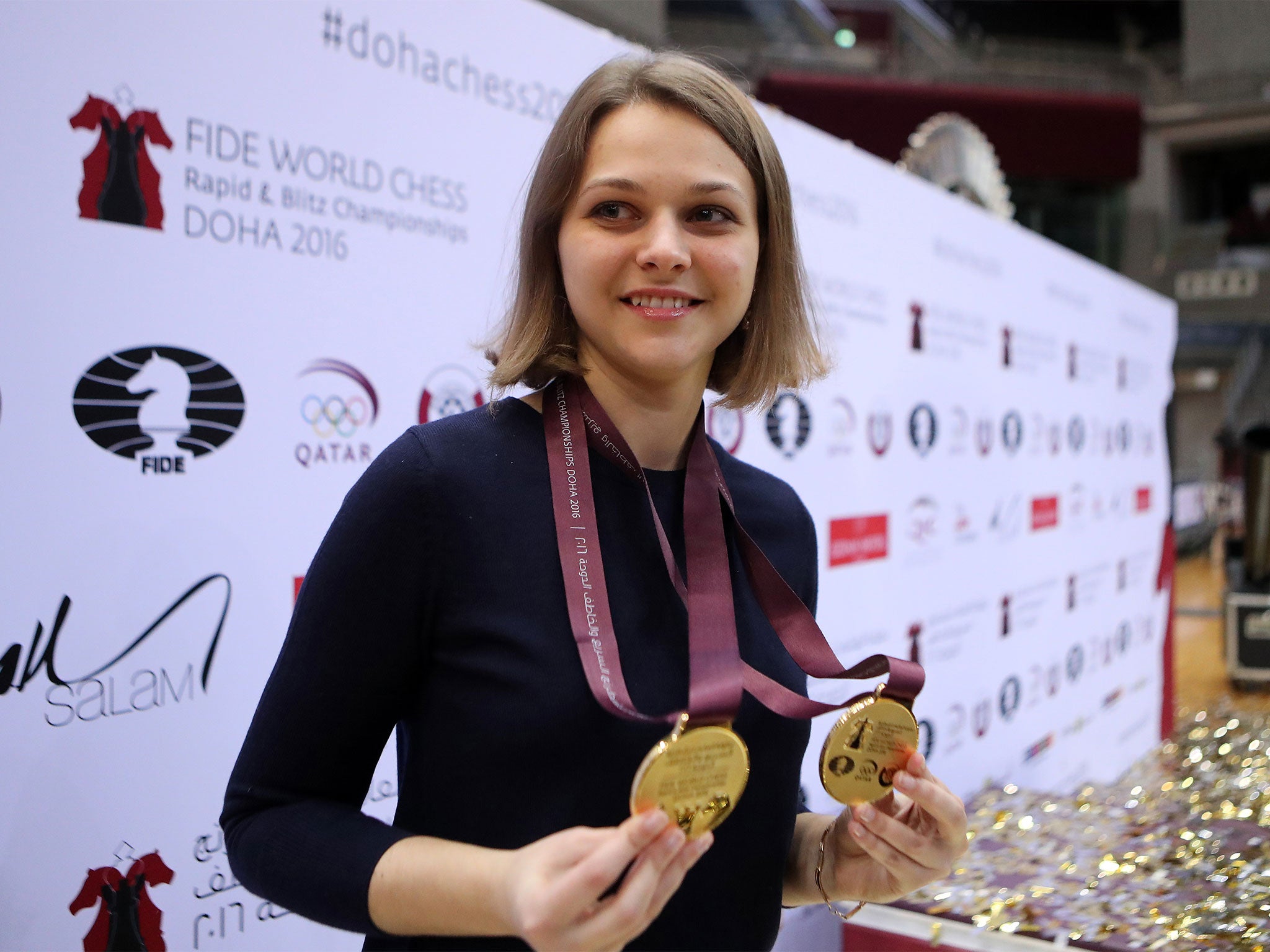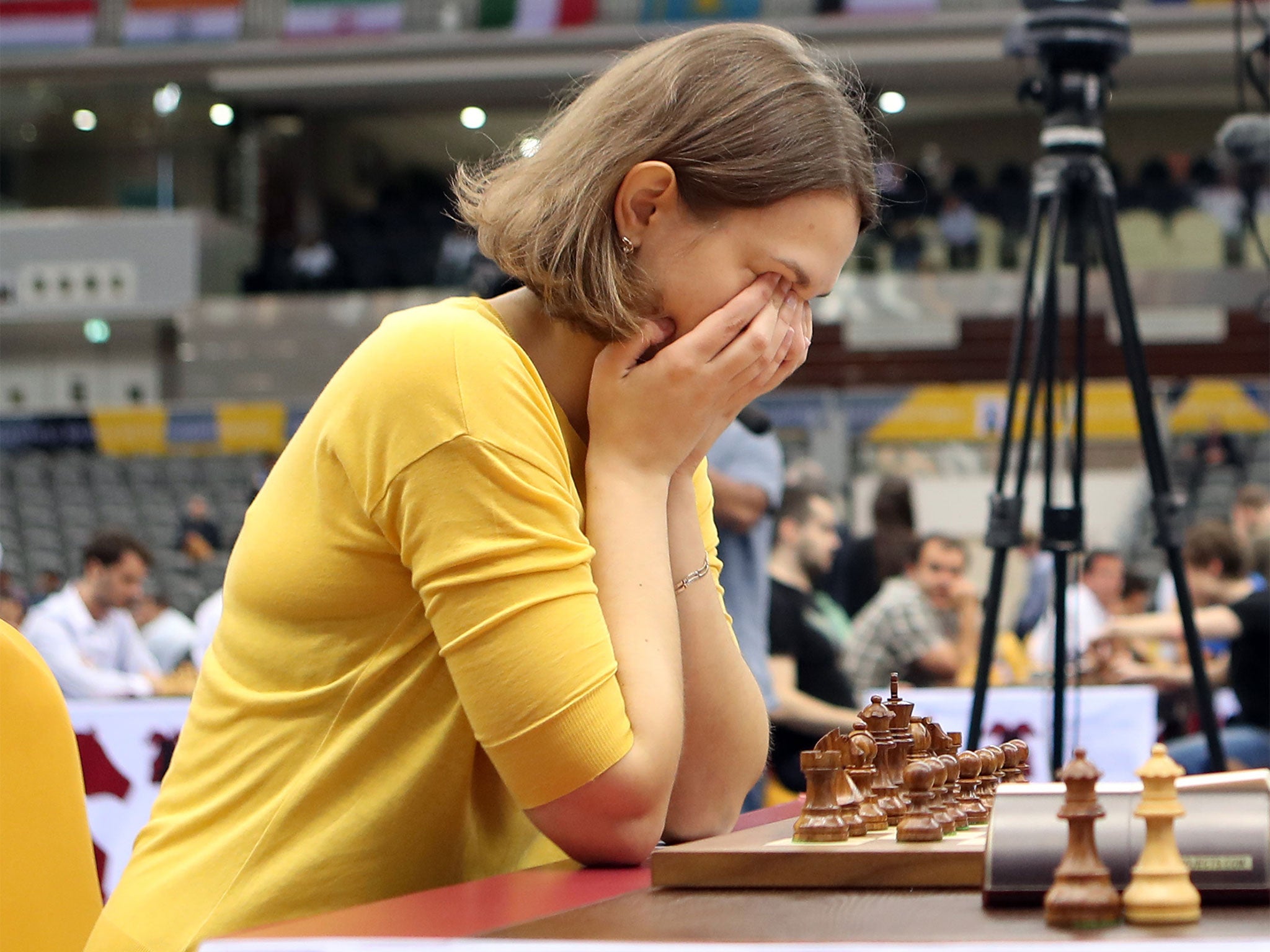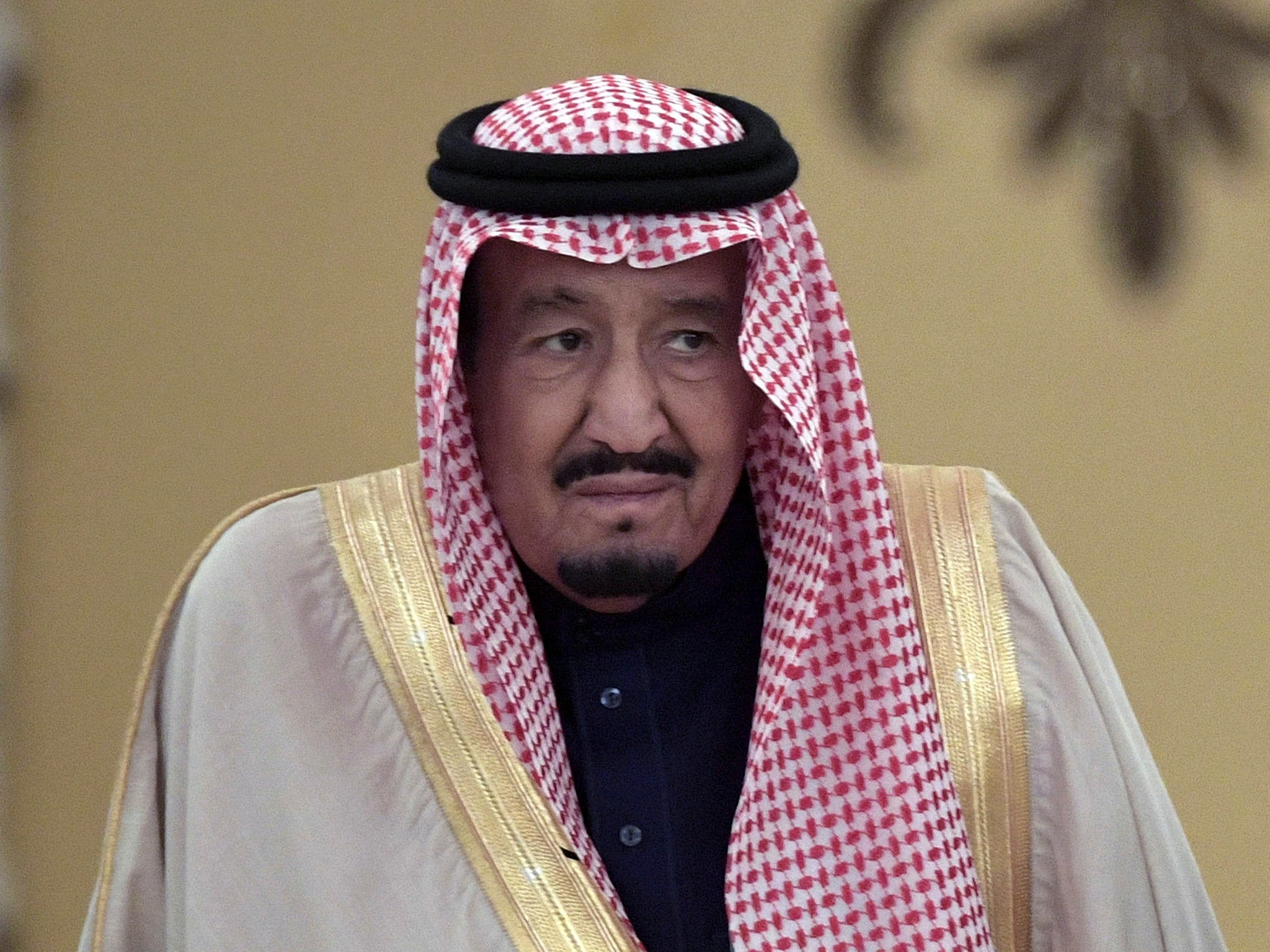'I am ready to stand for my principles': Double world chess champion says she won't defend titles in Saudi Arabia because of kingdom's inequality
The Ukrainian, 27, will not travel to Saudi Arabia, where she wouldn't even be allowed to walk down the street unaccompanied

Your support helps us to tell the story
From reproductive rights to climate change to Big Tech, The Independent is on the ground when the story is developing. Whether it's investigating the financials of Elon Musk's pro-Trump PAC or producing our latest documentary, 'The A Word', which shines a light on the American women fighting for reproductive rights, we know how important it is to parse out the facts from the messaging.
At such a critical moment in US history, we need reporters on the ground. Your donation allows us to keep sending journalists to speak to both sides of the story.
The Independent is trusted by Americans across the entire political spectrum. And unlike many other quality news outlets, we choose not to lock Americans out of our reporting and analysis with paywalls. We believe quality journalism should be available to everyone, paid for by those who can afford it.
Your support makes all the difference.It takes years of work, days of staring at a board and hours of agonising over individual moves en route to becoming a world champion in chess.
And it takes only a short-sighted decision from its governing body to ensure you lose that crown.
"In a few days I am going to lose two World Champion titles - one by one," Anna Muzychuk says.
"Just because I decided not to go to Saudi Arabia."
Muyzchuk is the defending world champion in two disciplines of speed chess - rapid and blitz. In rapid, each players gets 15 minutes to complete all of their moves and in blitz it is just 5.

The 27-year-old Ukrainian had been looking forward to defending her championships won in Doha, Qatar in 2016 but this year's competition, hosted by a political rival, has already faced far more opposition than any chess competition ever should.
For Muzychuk and her sister Mariya, another chess pro, their refusal is on the grounds that the Kingdom of Saudi Arabia does not treat women with anything even approaching equality - a country where the sisters would not be allowed outside unless escorted by a man.
"[I decided] not to play by someone's rules, not to wear abaya, not to be accompanied getting outside, and altogether not to feel myself a secondary creature," she said in an emotional statement.
"Exactly one year ago I won these two titles and was about the happiest person in the chess world but this time I feel really bad. I am ready to stand for my principles and skip the event, where in five days I was expected to earn more than I do in a dozen of events combined."

And therein lies the problem. Saudi Arabia are understood to have paid in the region of US$1.5m to host the tournament, which will be called the King Salman World Rapid and Blitz Chess Championships. That fee is four times what the host usually forks out and the prize money at this week's event is many multiples of what players would usually expect to receive - particularly championship contenders like Anna.
Women are, according to local reports, being allowed to wear dark blue or black formal trousers and high-necked blouses, avoiding Saudi rules of dress that require female residents and most visitors to wear loose-fitting, long robes known as abayas. Most Saudi women also cover their hair and face with veils though the tournament organisers insisted on Tuesday that they are not requiring competitors to wear abaya.
But it is not just women who have had problems with the Saudi-hosted event.
The very fact that this country is hosting a world chess tournament for the first time is controversial domestically as it comes two years after the country's top cleric issued a religious edict against playing the board game. Saudi Arabia's top cleric, Grand Mufti Sheikh Abdulaziz Al Sheikh, said in early 2016 that chess is "forbidden" in Islam because it wastes time and can lead to rivalry among players. Similarly, top Iranian clerics have also decried the game, saying it can lead to gambling, which is banned in Islam.

Then there are the political issues, with countries that are currently geo-political rivals of the Kingdom complaining they have not received visas to enter the country and compete.
Israelis say Saudi Arabia ignored requests by Israeli players to obtain visas to participate in the tournament, perhaps unsurprising given that Israel and Saudi Arabia do not have diplomatic relations. But Qatar and Iran have reported similar grievances. While the top three male players are all travelling for the tournament, many will be missing and the women's competition is still reeling from Muzychuk's withdrawal on Tuesday.
"All that other stuff is annoying, but the most upsetting thing is that almost nobody really cares," Muzychuk added in her Facebook post.
"That is a really bitter feeling, still not the one to change my opinion and my principles. The same goes for my sister Mariya - and I am really happy that we share this point of view. And yes, for those few who care - we'll be back!"
Join our commenting forum
Join thought-provoking conversations, follow other Independent readers and see their replies
0Comments